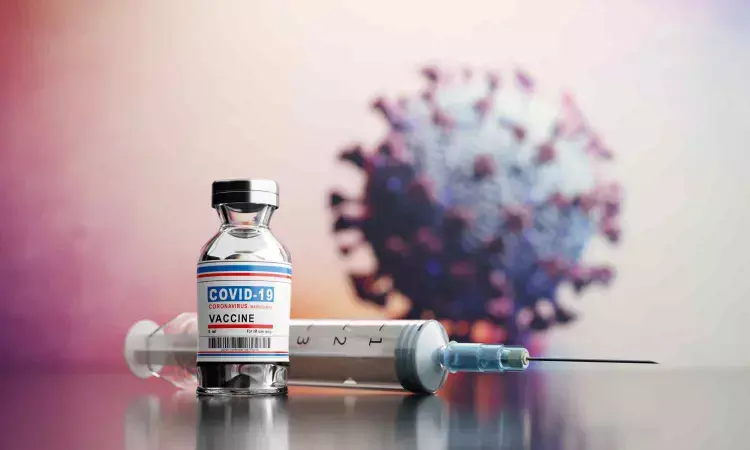- Home
- Medical news & Guidelines
- Anesthesiology
- Cardiology and CTVS
- Critical Care
- Dentistry
- Dermatology
- Diabetes and Endocrinology
- ENT
- Gastroenterology
- Medicine
- Nephrology
- Neurology
- Obstretics-Gynaecology
- Oncology
- Ophthalmology
- Orthopaedics
- Pediatrics-Neonatology
- Psychiatry
- Pulmonology
- Radiology
- Surgery
- Urology
- Laboratory Medicine
- Diet
- Nursing
- Paramedical
- Physiotherapy
- Health news
- Fact Check
- Bone Health Fact Check
- Brain Health Fact Check
- Cancer Related Fact Check
- Child Care Fact Check
- Dental and oral health fact check
- Diabetes and metabolic health fact check
- Diet and Nutrition Fact Check
- Eye and ENT Care Fact Check
- Fitness fact check
- Gut health fact check
- Heart health fact check
- Kidney health fact check
- Medical education fact check
- Men's health fact check
- Respiratory fact check
- Skin and hair care fact check
- Vaccine and Immunization fact check
- Women's health fact check
- AYUSH
- State News
- Andaman and Nicobar Islands
- Andhra Pradesh
- Arunachal Pradesh
- Assam
- Bihar
- Chandigarh
- Chattisgarh
- Dadra and Nagar Haveli
- Daman and Diu
- Delhi
- Goa
- Gujarat
- Haryana
- Himachal Pradesh
- Jammu & Kashmir
- Jharkhand
- Karnataka
- Kerala
- Ladakh
- Lakshadweep
- Madhya Pradesh
- Maharashtra
- Manipur
- Meghalaya
- Mizoram
- Nagaland
- Odisha
- Puducherry
- Punjab
- Rajasthan
- Sikkim
- Tamil Nadu
- Telangana
- Tripura
- Uttar Pradesh
- Uttrakhand
- West Bengal
- Medical Education
- Industry
NEJM study reveals Link between COVID-19 vaccine complication and rare 'common cold' blood disease

New research led by Flinders University and international experts is expanding understanding of vaccine-induced immune thrombocytopenia and thrombosis known as VITT.
At the height of the COVID-19 pandemic in 2021,VITT emerged as a new disease following adenovirus vector-based vaccines-notably the Oxford-AstraZeneca vaccine.
VITT was found to be caused by an unusually dangerous blood autoantibody directed against a protein termed platelet factor 4 (or PF4).
In separate research in 2023, researchers from Canada, North America, Germany and Italy described a virtually identical disorder with the same PF4 antibody that was fatal in some cases after natural adenovirus or common cold infection.
Flinders University researchers Dr Jing Jing Wang and Flinders Professor Tom Gordon, Head of Immunology at SA Pathology in South Australia, led a previous study in 2022 which cracked the molecular code of the PF4 antibody and identified a genetic risk factor related to an antibody gene termed IGLV3.21*02.
Now, the Flinders group has collaborated with this international group of researchers to find that the PF4 antibodies in both adenovirus infection-associated VITT and classic adenoviral vectored VITT share identical molecular fingerprints or signatures.
The research will also have implications for improving vaccine development, says Flinders University researcher Dr Wang, first author on the new article to be published in the eminent New England Journal of Medicine on Thursday.
“These findings, using a completely new approach for targeting blood antibodies developed at Flinders University, indicate a common triggering factor on virus and vaccine structures that initiates the pathological pF4 antibodies,” explains Professor Gordon.
"Indeed, the pathways of lethal antibody production in these disorders must be virtually identical and have similar genetic risk factors.
"Our findings have the important clinical implication that lessons learned from VITT are applicable to rare cases of blood clotting after adenovirus (a common cold) infections, as well as having implications for vaccine development," he says.
Reference:
Antibody Fingerprints Linking Adenoviral Anti-PF4 Disorders, New England Journal of Medicine, DOI: 10.1056/NEJMc2402592
Dr Kamal Kant Kohli-MBBS, DTCD- a chest specialist with more than 30 years of practice and a flair for writing clinical articles, Dr Kamal Kant Kohli joined Medical Dialogues as a Chief Editor of Medical News. Besides writing articles, as an editor, he proofreads and verifies all the medical content published on Medical Dialogues including those coming from journals, studies,medical conferences,guidelines etc. Email: drkohli@medicaldialogues.in. Contact no. 011-43720751


